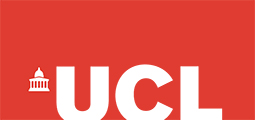We are pleased to announce a further publication, specific to COVID-19 research led by the team at the Hatter Cardiovascular Institute, has now been published. Entitled “Effect of Remote Ischaemic Conditioning on the Inflammatory Cytokine Cascade of COVID‑19 (RIC in COVID‑19): a Randomized Controlled Trial” follows on from our study announcement paper (J Cardiovasc Drugs & Therapy 2021) and now details the outcomes of trial. The paper has been published in the recent issue of the journal Cardiovascular Drugs and Therapy (published online 29th Nov 2022) and can be read here.
In recent years, The Hatter Cardiovascular Institute (HCI) has been active in investigating the role of the inflammatory system as a cause of significant injury during acute myocardial infarction and ischemic stroke. Importantly our research into methods of alleviating this inflammatory response are similar to events that we saw in the early stages of the COVID-19 disease, i.e. the cellular mechanisms are similar to those seen in patients with sepsis. The phenomenon known as “Remote Ischemic Conditioning” (RIC), which is a simple non-invasive procedure, has been shown to prevent cellular injury following sepsis in preclinical studies. Therefore, based on the evidence from studies investigating sepsis, it was hypothesised that the same benefit may be seen in patients diagnosed with COVID-19.
In April 2020, at the start of the COVID-19 pandemic, The Hatter Cardiovascular Institute initiated a novel trial to investigate the potential for RIC to reduce the severity of anti-inflammatory cytokines which are responsible the so-called cytokine “storm” that occurs in COVID-19 patients. Approved as part of the fast-track review scheme provided through UCLH and the National Research Ethics Boards to expedite important COVID-19 research, the study included UCLH, The Royal Free Hospital (London) and The Lister Hospital (Stevenage). The aim of the study was ultimately to halt, or at least attenuate, the disease process before patients enter the intensive care units when the situation changes dramatically and may be too late.
In further development of the trial, the HCI forged strong collaborations with two leading teams in South Africa and Brazil to investigate in parallel the use of RIC in COVID-19 patients in their populations. The global pandemic presented unique opportunities to collaborate internationally and widen the scope of the research to develop new methods to reduce the heightened inflammatory response essential to halting progression of COVID-19 in patients and reducing the severity of damage.
In the paper, the authors discuss the complex outcomes of the multi-country trial. Due to the rapidly evolving pandemic, quickly changing clinical environment, and patient presentations, the trial results were challenging to draw a clear conclusion from. Study parameters naturally varied from the first to the last recruited patient (total of 80 were recruited). Furthermore due to the evolving nature of the pandemic, dexamethasone for example became standard of care midway through the trail for patients in some countries but not others. Therefore, without being able to standardise all parameters, it was difficult to draw a clear conclusion from the cytokine results observed. While in this instance, RIC was not found to provide a significant reduction in inflammatory cytokines in patients with COVID-19, it did highlight potential for further investigation into this area with a larger patient cohort and standardised conditions.
The HCI would like to thank all of the teams across the UK, Brazil and South Africa who contributed to this research during such challenging circumstances and of course to the -patients who took part. Finally we are also indebted to the Thompson Family Trust and the Hatter Foundation for their support of this study.



